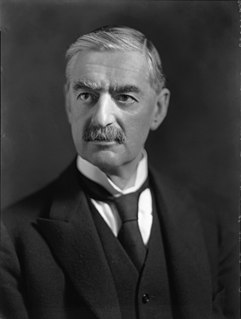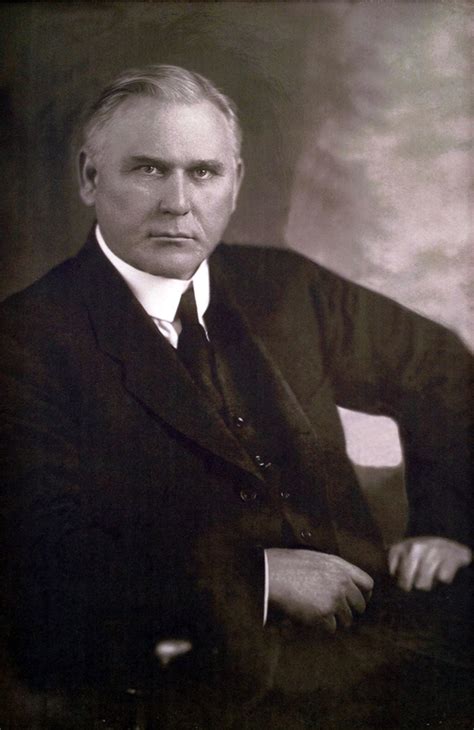A Quote by Walter Lippmann
A state is absolute in the sense which I have in mind when it claims the right to a monopoly of all the force within the community, to make war, to make peace, to conscript life, to tax, to establish and disestablish property, to define crime, to punish disobedience, to control education, to supervise the family, to regulate personal habits, and to censor opinions. The modern state claims all of these powers, and, in the matter of theory, there is no real difference in the size of the claim between communists, fascists, and Democrats.
Quote Topics
Absolute
Between
Censor
Claim
Claims
Communists
Community
Control
Crime
Define
Democrats
Difference
Disobedience
Education
Establish
Family
Fascists
Force
Habits
Life
Make
Matter
Mind
Modern
Monopoly
Opinions
Peace
Personal
Powers
Property
Punish
Real
Regulate
Right
Sense
Size
State
Tax
Theory
War
Which
Within
Related Quotes
There is an appearance of humility in the protestation that the truth is much greater than any one of us can grasp, but if this is used to invalidate all claims to discern the truth it is in fact an arrogant claim to a kind of knowledge which is superior to [all others]...We have to ask: 'What is the [absolute] vantage ground from which you claim to be able to relativize all the absolute claims these different scriptures make?
Precisely because the State has the monopoly of coercion it can be allowed the monopoly only of coercion. Only if the modern State can be held within a strictly limited agency of duties and powers can it be prevented from regimenting, conquering, and ultimately devouring the society which gave it birth.
The divorce between Church and State ought to be absolute. It ought to be so absolute that no Church property anywhere, in any state or in the nation, should be exempt from equal taxation; for if you exempt the property of any church organization, to that extent you impose a tax upon the whole community.
I believe in absolute freedom of conscience for all men and equality of all churches, all sects and all beliefs before the law as a matter of right and not as a matter of favor. I believe in the absolute separation of church and state and in the strict enforcement of the Constitution that Congress shall make no law respecting an establishment of religion or prohibiting the free exercise thereof I believe that no tribunal of any church has any power to make any decree of any force in the law of the land, other than to establish the status of its own communicants within its own church.
Civil rights, as we may remember, are reducible to three primary heads; the right of personal security; the right of personal liberty; and the right of private property. In a state of slavery, the two last are wholly abolished, the person of the slave being at the absolute disposal of his master; and property, what he is incapable, in that state, either of acquiring, or holding, in his own use. Hence, it will appear how perfectly irreconcilable a state of slavery is to the principles of a democracy, which form the basis and foundation of our government.
The Council of the Union of Democratic Control re-affirms its unshaken conviction that a lasting settlement cannot be secured by a peace based upon the right of conquest and followed by commercial war, but only by a peace which gives just consideration to the claims of nationality, and which lays the foundation of a real European partnership.
Inasmuch as every family is a part of a state, and these relationships are the parts of a family, and the virtue of the part must have regard to the virtue of the whole, women and children must be trained by education with an eye to the constitution, if the virtues of either of them are supposed to make any difference in the virtues of the state. And they must make a difference: for the children grow up to be citizens, and half the free persons in a state are women.
I want everyone to keep the property that he has acquired for himself according to the principle: benefit to the community precedes benefit to the individual. But the state should retain supervision and each property owner should consider himself appointed by the state. It is his duty not to use his property against the interests of others among his own people. This is the crucial matter. The Third Reich will always retain its right to control the owners of property.
For centuries it was never discovered that education was a function of the State, and the State never attempted to educate. But when modern absolutism arose, it laid claim to everything on behalf of the sovereign power....When the revolutionary theory of government began to prevail, and Church and State found that they were educating for opposite ends and in a contradictory spirit, it became necessary to remove children entirely from the influence of religion.
Swami cannot give peace of mind; you must work for it yourselves. First, stop the questioning and ask, 'who am I?'. This is my body, my mind, my intelligence. But who is this 'My'? Who is it that claims the ownership of that which is declared to be 'mine'? 'My' indicates ownership. That 'My' is the life. As long as the life is in the body, there is this connection between the 'my' and the intellect - 'my' body, 'my' house, 'my' land. But the moment you remove the life from the body, there is no 'my' or sense of possession. Life is God.
Our contention is not for mere toleration, but for absolute liberty. There is a wide difference between toleration and liberty. Toleration implies that somebody falsely claims the right to tolerate. Toleration is a concession, while liberty is a right. Toleration is a matter of expediency, while liberty is a matter of principle.

































